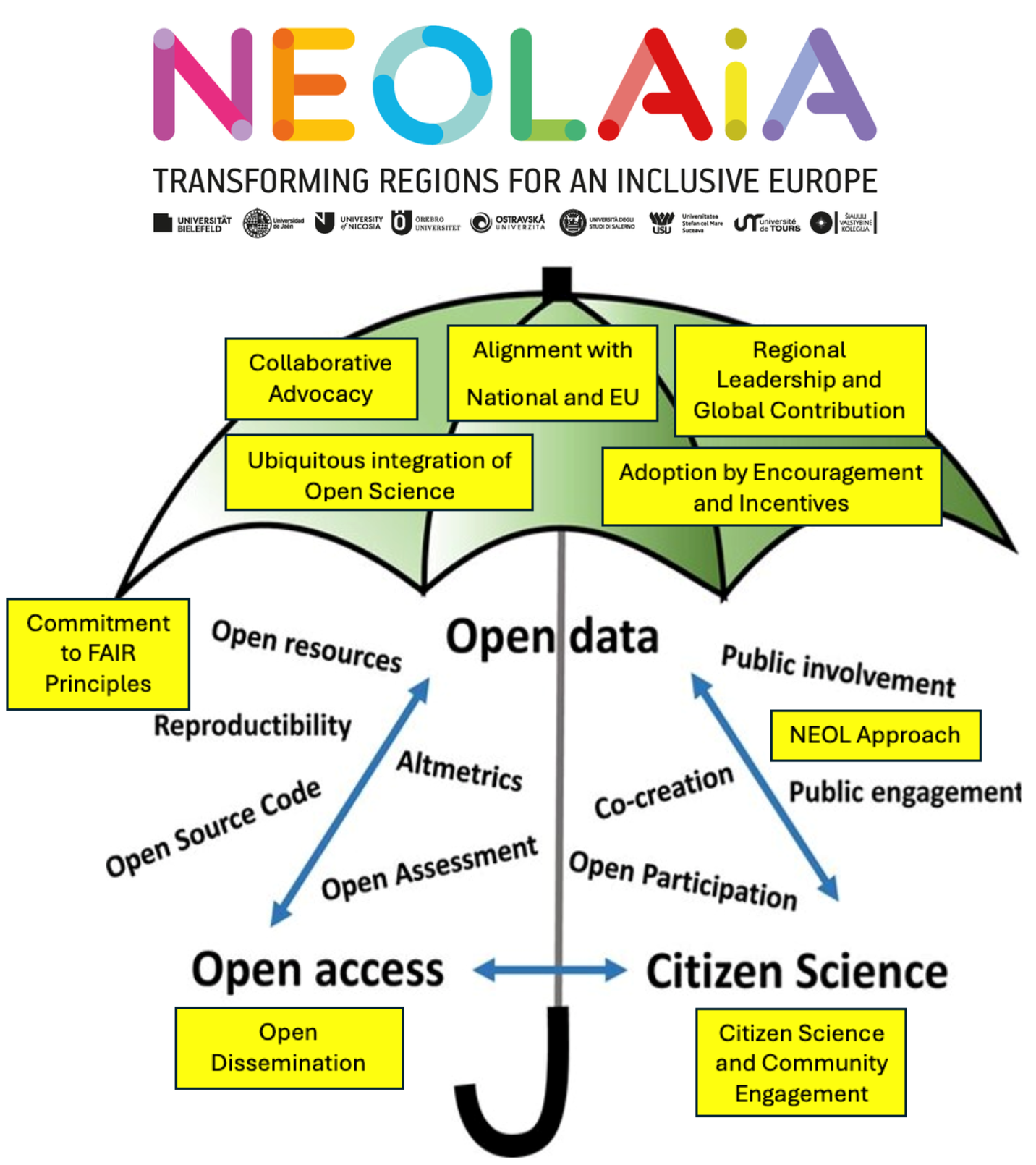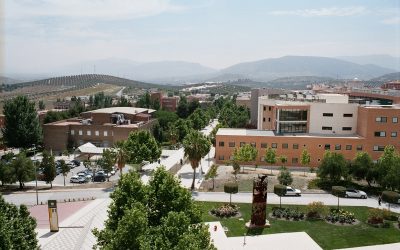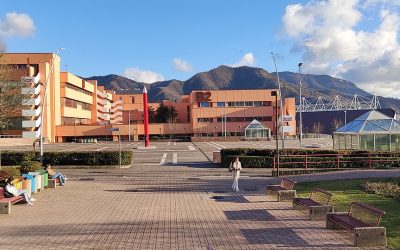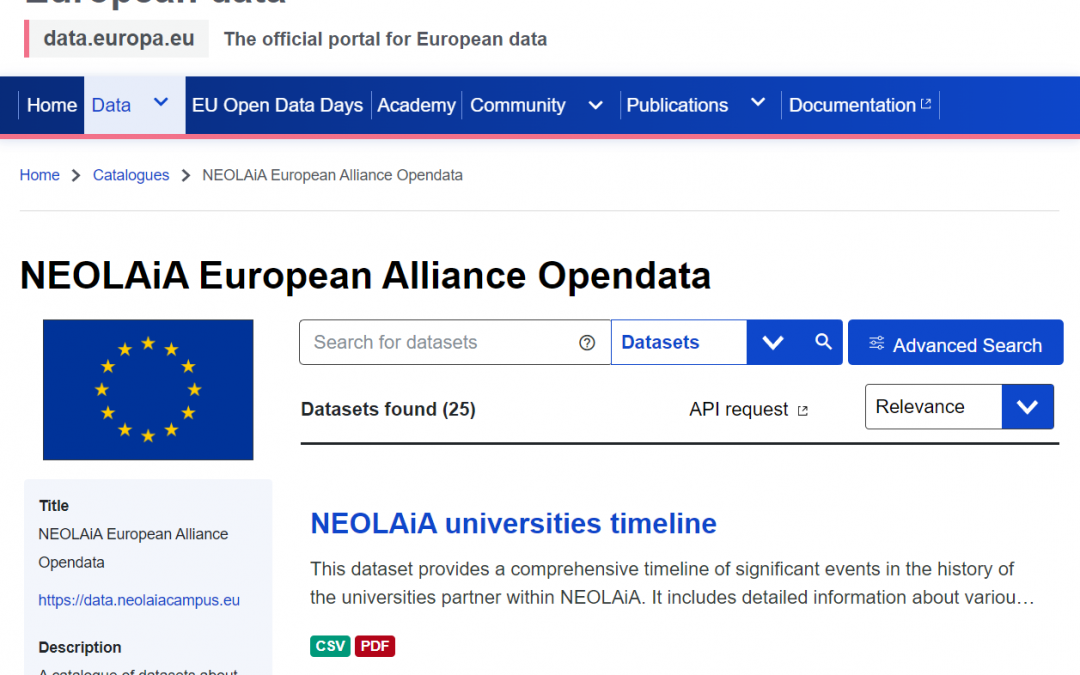NEOLAiA Open Science Portal
Welcome to NEOLAiA’s Open Science site!
Here, you’ll find information about our recent achievements in the Showcase, our Open Data, and updates on Open Science developments. Once again, welcome to our site!
Our vision for Open Science builds upon the UNESCO Definition and European Open Science Ambitions. In particular, the UNESCO definition serves as an umbrella that unifies various movements and practices with three main goals: making multilingual scientific knowledge openly available and reusable for everyone, increasing scientific collaboration and information sharing for the benefit of science and society, and opening scientific processes to societal actors beyond the traditional scientific community.
Our Open Science framework focuses on three core areas: Open Access, Open Data, and Citizen Science. These are implemented following established best practices, and NEOLAiA’s nine pillars align with these areas to demonstrate our commitment to Open Science.
Latest Results
NEOLAiA Open Data Harvested to the European data portal in 2025!
1️⃣ NEOLAiA’s dataset catalogue is now live on the European data portal — public data is open, accessible, and reusable EU-wide.
2️⃣ Datasets sync automatically via metadata harvesting — no extra steps needed.
3️⃣ NEOLAiA data gains EU-wide visibility — boosting transparency, collaboration, and innovation.

Showcase
EU-Funded Research & Innovation at the University of Jaén (2021-2024)
The University of Jaén (UJA) is open to international collaboration to enrich its teaching, research, and innovation activities. It takes an active role in European cutting-edge research, acting either as coordinator or partner. The UJA has participated in 42 projects...
Bielefeld University – International mobility 2023-2024
Student mobility is a cornerstone of Bielefeld University’s internationalisation. The Erasmus programs are promoted at the university through information campaigns organized by the International Office and the individual faculties of Bielefeld University. These...
UNISA and EU-Funded Research: A Commitment to International Knowledge and Innovation (2021–2025)
In recent years, the role of universities in shaping a more inclusive, innovative, and resilient Europe has become increasingly central. Research is no longer confined to academic boundaries—it drives transformation, fosters collaboration, and addresses global...
Map of European Universities in the 65 Alliances
Discover all the universities involved in the 65 European Universities Alliances through the map. These alliances are a key part of the European strategy for universities, bringing together 65 alliances and over 560 higher education institutions from across Europe.






